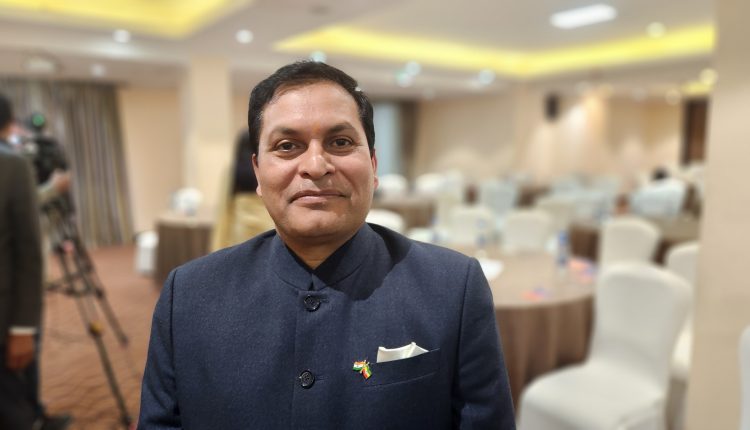Ambassador Reaffirms India’s Commitment to Strengthen Bilateral Trade with Ethiopia
By Wondesen Aregahegn
Addis Ababa, August 21, 2024 (FBC) – Indian Ambassador to Ethiopia, Anil Kumar Rai, has highlighted the significant demand for Ethiopian agricultural products, including coffee, pulses and oilseeds in India. He urged both the Ethiopian government and the business sector to seize market opportunities in India.
During his remarks, Ambassador Rai emphasized the shared interests between Ethiopia and India that could enhance their bilateral trade relations, noting that the BRICS+ platform serves as a significant catalyst for deeper economic collaboration.
While acknowledging the impressive growth of bilateral trade between the two nations, he stressed the importance of coordinated efforts to achieve a more balanced trade relationship. “Ethiopia is among the fastest-growing economies globally, with vast agricultural potential. We are dedicated to providing technical support and scientific expertise to help the nation utilize its resources for our mutual benefit,” he stated.
A recent collaborative study by the Indian Embassy and Ethiopia’s Ministry of Agriculture has outlined strategic recommendations aimed at boosting agricultural exports from Ethiopia.
In an exclusive interview with FBC, Ambassador Rai praised Prime Minister Abiy Ahmed’s leadership, which he believes has played a critical role in implementing macroeconomic reforms that foster a favorable environment for investment and economic growth.
He noted that Ethiopia has prioritized agriculture as a key pillar of its economy, which is essential for enhancing agricultural productivity and export capabilities. “We possess valuable experience to share in this area,” he remarked.
Additionally, the Ambassador highlighted that Ethiopia’s recent accession to BRICS+ further strengthens the potential for enhanced cooperation in trade, economic development, and investment. He expressed optimism that this membership will provide Ethiopia with opportunities to leverage its investment resources and human capital for greater economic gains in an increasingly multipolar global landscape.



